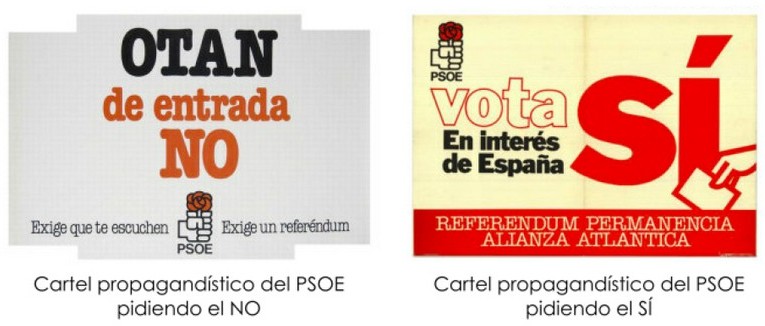Donald Trump took a swing at Spain last week, describing this country to (for some reason) the Finnish prime minister as being behind on its military spending. The American agency AP reports that Trump told Alexander Stubb in a meeting at the Oval Office that “You people are going to have to start speaking to Spain. You’re gonna have to call them and find out why they are a laggard. They have no excuse not to do this, but that’s all right. Maybe you should throw them out of Nato, frankly”.
In fact, Spain spends just 2% of its GDP on defence. The recommended level in these difficult times is 5%. The arms manufacturers would probably agree with this figure.
The leader of the Partido Popular Alberto Núñez Feijóo says he would raise the spending accordingly if the party were to win an election (the next one, all being well, is planned for 2027). He says: "The problem isn't Spain; the problem is Pedro Sánchez. Spain has always been a reliable and credible partner within Nato, and it will continue to be so".
This at the same time as lowering taxes for the wealthy and – inevitably – reducing spending in health, wages and pensions.
Spain joined Nato (they call it the OTAN) back in May 1982. In those days, the people had been largely against joining (except that nobody had asked them) until Felipe Gonzalez agreed four years later to hold a referendum on the subject and then, surprisingly, performed an ideological flip and told his bemused supporters that ‘We must say ‘Yes’’ – apparently because he was worried that Morocco might have taken the opportunity to annex Melilla and Ceuta (with its current combined population of 160,000 souls). The question asked was "The Government considers it convenient, for national interests, for Spain to remain in the Atlantic Alliance, and agrees that such permanence be established in the following terms: (1) Non-incorporation into Nato's military structure; (2) Prohibition on the installation, storage or entry of nuclear weapons on Spanish territory; (3) Gradual reduction of the United States' military presence in Spain. Question: In your view, should Spain continue to be a member of the Atlantic Alliance subject to the terms agreed by the national Government?" Around 57% of those who understood the question answered with a resounding ‘Sí’.
Membership of Nato is getting expensive and while 2% is a commendable figure (how does one say ‘I surrender’ in Russian?), 5% is certainly way over the limit. A Guardian article from June this year says ‘Spain rejects Nato plan for member states to spend 5% of GDP on defence. PM Pedro Sánchez says he wants a more flexible formula that would make the target optional or allow Madrid to opt out’.
In broad terms, the farther left one goes, the louder is the call to leave Nato. The Izquierda Unida, for example, says: ‘We encourage Trump to accelerate Spain's expulsion from Nato and the withdrawal of its two military bases’. That’s right, the US military bases in Morón de la Frontera (air-force base) and Rota (naval base), in the provinces of Seville and Cádiz respectively. Mind you, there’s always Gibraltar and the Lajes base in the Azores if needs must. The leftie Diario-Red wants another referendum on Nato, which would, with little doubt, achieve nothing. Vox on the other extreme says that Sánchez with his short-term savings is ‘seriously harming our national security’.
In the middle, we think 2% sounds about right and we hope that neither the USA or indeed the Russians will (violently) disagree with us.
How dangerous is the world in 2025? Ben Hodges, the former US Army chief in Europe: "We are naive if we believe war will never touch Spain", he says.
But what about a future Nato without the USA? It wouldn’t be good says the CNN: ‘Europe is staring down the barrel of a stark new reality where the United States being the backbone of Nato – the alliance that has guaranteed the continent’s security for almost 80 years – is no longer a given…’ it adds: ‘But Nato without the US is far from impotent, with more than a million troops and modern weaponry at its disposal from the 31 other countries in the alliance. It also has the wealth and technological knowhow to defend itself without the US, analysts say’.
Phew! You had me worried there for a moment.